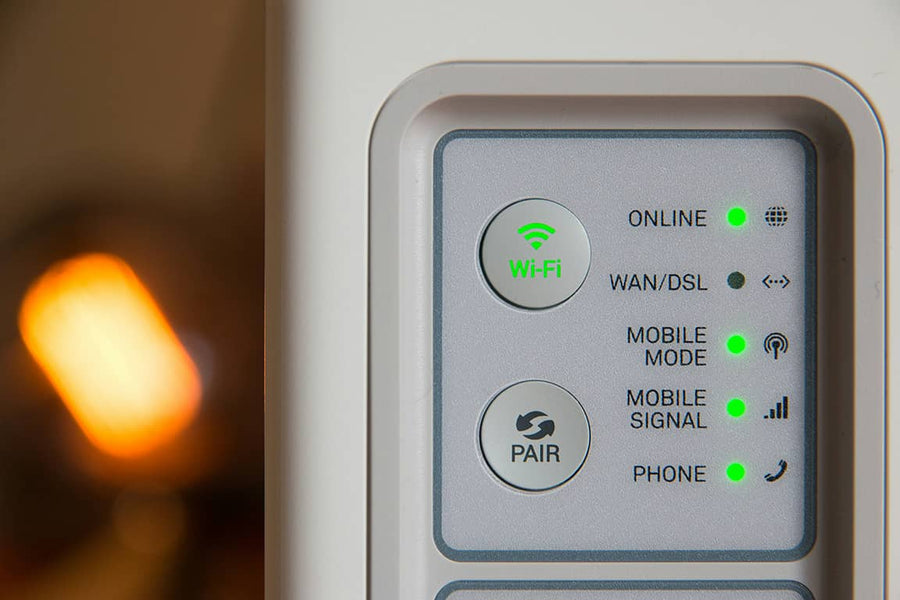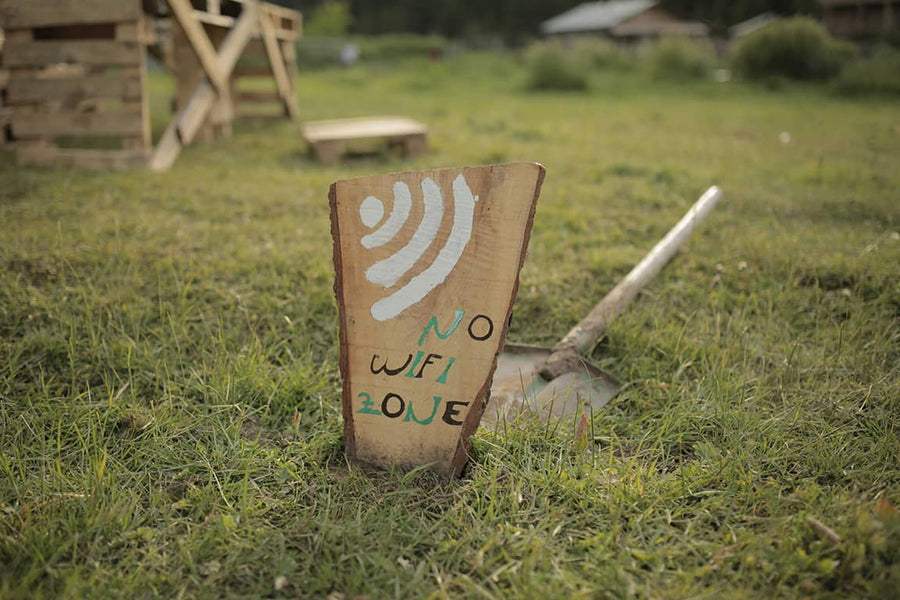When deciding on Internet needs for truck drivers, there are really only two options: cellular data or satellite service.
Why are there only have two options? The obvious answer is because there's no broadband or fiber available when you're on the road! But why do we consider cellular service better than satellite Internet? Hint: it's not just because we love our truck driving customers.
Pros of Satellite Internet for your Truck
- Global coverage: if you have to drive through borders, it's the best option available - no hassle with mobile providers.
- Full of features: it usually comes with a higher end router.
- Unlimited data plan available: usually at a high cost.
How Does Satellite Internet Work?
It's not really exciting, but basically, satellite service works by using a satellite in orbit to provide Internet access.
The system consists of three main components: the satellite in orbit, the ground station (or earth station), and the user's satellite modem.
Here's a step-by-step scenario to better understand the transmission process:
- The satellite modem sends a request for data (such as a web page) to the satellite in orbit.
- The satellite receives the request and forwards it to the ground station, which is connected to the Internet.
- The ground station retrieves the requested data from the Internet and sends it back to the satellite.
- The satellite then sends the data back to the satellite modem, which passes it along to the user's device (such as a laptop or phone).
Does this sound familiar? If so, that’s because it’s very similar to cellular data.
A ground station is basically the equivalent to a cell tower, the satellite modem sends data like a router or hotspot, and the satellite transmits the data back and forth like data centers.
So, if they're this comparable, why do we feel that satellite isn't the best portable Internet choice for our truck driving customers?
Cons of using Satellite Internet
- Latency: The time it takes for data to travel from the user's device to the satellite and back can result in slower speeds and higher latency, making it less suitable for activities that require fast and reliable Internet.
- Weather Disruptions: Weather conditions, such as heavy rain or snow, can interfere with the satellite signal and cause temporary disruptions in service.
- Sky Clear of Obstructions: Even if the weather's good, if you happen to be under a tree or a tall building, you'll lose connection.
- Limited Data Allowances: Some satellite Internet plans have limited data allowances, which can result in extra charges or reduced speeds if you exceed your monthly allowance.
- High Services Costs: Satellite Internet tend to be more expensive than other forms of Internet.
- High Installation and Equipment Costs: Setting up satellite Internet can be a complex process and may require special equipment resulting in high installation fees, adding to the overall cost of the service. You may even need to modify your vehicle (drilling) in order to install the satellite dish.
- Bandwidth Limitations: The limited amount of bandwidth available to satellite Internet users can result in slow speeds and congestion during peak hours, when many people are using the Internet simultaneously.
- Replacements: What happens when you need to change providers? You might need to change the setup, including the satellite dish.

The Benefits of Cellular Data
Cellular data is often considered better than satellite data for several reasons, including:
- Speed: Cellular networks have faster data speeds compared to satellite networks. This means that users can download and upload data much quicker on the road, which is important for activities like downloading or uploading large files.
- Reliability: Cellular networks have a more robust infrastructure and better coverage compared to satellite networks. Drivers are less likely to experience connection issues or outages.
- Latency: The delay between sending and receiving data is lower with cellular data compared to satellite data. This is important for applications that require real-time communication, such as online gaming or video calls.
- Cost: In many cases, cellular data plans are more affordable compared to satellite data plans, especially for heavy data users.
- Portability: Cellular data is typically more portable than satellite data, as it does not require a clear line of sight to a satellite. This makes it easier for users to access the internet from more locations.
- Bandwidth Regulation: Cell phone carriers regulate and manage their bandwidth to create an even playing field for most customers. This is why you don't see many unlimited plans for hotspots and routers, and only see it on phones.
- Technology: Cellular technology is easy to upgrade and maintain: no need to modify your truck to install a satellite dish, a hotspot is enough.
What's the best Internet option for truckers?
It's worth noting that satellite data has improved in recent years, and it remains an important option for remote or rural areas where cellular coverage may be limited -- which should rarely be a problem for truck drivers.
Additionally, the quality of cellular data can also vary depending on several factors, including the provider, location, and network congestion (although, the same can be said for satellite service as well).
Overall, if you are only driving within the States, a mobile data plan will fit your needs better, or at least, it'll be cheaper for about the same results.
If you are for some reason driving off-road or off the grid with your truck, you might consider getting satellite Internet, but where there are roads in the US, there is cell service.
The Solution by EZ Mobile Data
More than anything, at EZ Mobile Data, we understand your needs as a truck driver, as we've been serving hundreds of you across the United States for years.
Most of our customers are truck drivers, they love us as much as we love them!
Why did they choose EZ Mobile Data? It's easy (it's in the name!): no contract, no headache, and more importantly, we deliver the best value wherever you are in the US.
Are you interested in our mobile data plans? Why not give us a call: we'll be more than happy to discuss your needs and you can be sure to drive away with the right solution.








